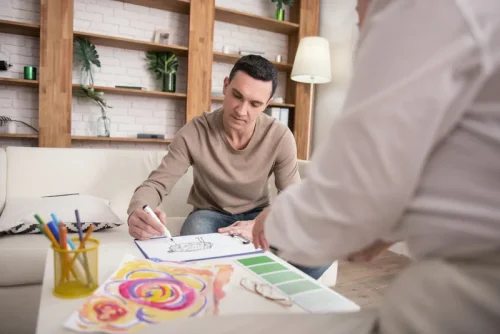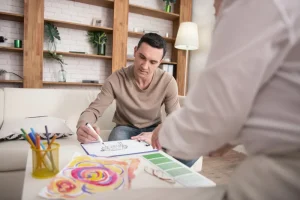
If you are feeling lonely and are struggling with a substance use disorder, you are not alone. At Twin Lakes Recovery Center in Monroe, Georgia, we can help put you on the path to a lasting recovery. To learn more about our programs and services, please get in touch with us today. While the internet ensures that we’re connected on a basic level, the problem is that these relationships are all parasocial. Unfortunately, far too many of us are not building real relationships with real people. As a result, as the predominance of social media rises, our ability to connect and build healthy relationships actually decreases.
- There are many ways to safeguard your journey to battle these negative thoughts.
- By addressing these areas, individuals can cultivate a positive self-image, making it easier to engage with others.
- The journey ahead is filled with potential for meaningful connections and a fulfilling life.
- Even things that aren’t typically considered “addictions,” like over-eating and excessive social media use, are often seen through the lens of loneliness.
- Try going to a restaurant by yourself or exploring your town or city alone.
Mental Health Challenges that Drive Addiction

Taking a walk in a park, sitting in a café, or attending local events like concerts or sports games can help break the cycle of loneliness. Engage in hobbies and interests, and don’t hesitate to join a book club or online forums to meet new people. Volunteering can provide a powerful remedy for loneliness by instilling a sense of purpose and belonging. Recovery can strain relationships, but it’s possible to rebuild trust and strengthen bonds with loved ones. Change the perspective that solitude and being lonely are the same thing. Loneliness is a detachment, whether it’s from yourself or from other people.
How Do You Know if You Need Residential Treatment for Addiction?

When you leave behind the people and https://ecosoberhouse.com/ environments of your addiction it can create a huge social void. This transition period can be hard but it’s important to know that loneliness is not a sign of weakness. If you or a loved one are in need of professional help, there are several resources and treatment options to help you combat your loneliness in addiction recovery. One of the most effective ways to combat loneliness is by connecting with others who understand your experiences.
Regular Meetings
Exercising helps improve your physical and mental health but also distracts from the monotony of self-isolating. Rekindle old hobbies, become a volunteer, and engage in regular exercise. These activities make you feel better, and you can connect with people who share similar interests. With this last tip, we want to remind you that – although this lonely moment or phase may be miserable – you’re in recovery. You take positive steps every day to stay loneliness in recovery on your program, stay in recovery, and stay sober. That means you’re alive and living life on your terms – rather than terms dictated by an alcohol or substance use disorder.
- In a treatment program or sober residence, you’ll almost always be surrounded by other people at various stages in their recovery.
- However, there are practical strategies that individuals can implement to alleviate feelings of isolation and cultivate connections with others.
- Explore how drug alcohol dependence leads to addiction, its impact, and paths to recovery.
- Plus, there are many ways you can have fun and interact with others online to overcome isolation.
- Book clubs, exercise classes, church groups, cooking classes, and so many other opportunities can support sobriety without overtly addressing it.
- As you begin the process of recovery from addiction, it can help your feelings of loneliness to make amends with your friends and family.
After living a life of chaos, destruction and constant let downs, Mark was able to make a complete turnaround that sparked a new way of life. At WhiteSands Treatment, we offer support to you in your homes or when you are out living in your daily lives. You are bound to meet new people who share your interests — and maybe feel good about contributing to your community.

Failure to Treat Addiction is Leading to Unnecessary Deaths
Attending regular meetings gives you a place to be social, allows you to connect with others, and helps you build new relationships with people who share the same goals as you. This is crucial, as these people know what you’re going through because they’re going through it, too. You can relate to each other’s stories, and you can work through the toughest parts together. It is crucial to have loved ones Sober living house and your support network around you to help maintain your recovery aspirations. Nonetheless, it is just as vital to understand how to manage loneliness in recovery when it strikes. Feelings of social isolation in recovery can compound and trigger relapse, making overcoming loneliness an important goal on your list.


By incorporating these self-care practices, individuals can foster greater emotional resilience and cultivate a more positive mindset. Learning new things is a great way to keep busy when you have nothing to do. You don’t have to go to a gym to stay fit—you can find many exercises online and do them from home. Yoga, for instance, is an excellent way to manage stress and anxiety. Loneliness is contributing factor to AUD/SUD, and loneliness is often an outcome of initiating treatment and recovery from AUD/SUD. At the moment, we’re all under quarantine from the coronavirus and that might put a damper on meetings in your area.
